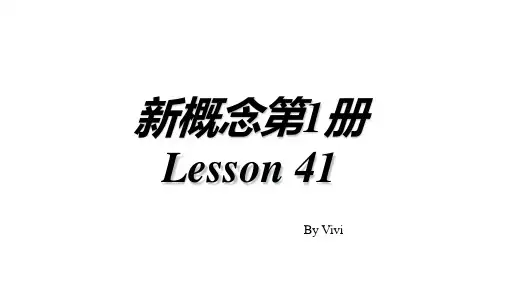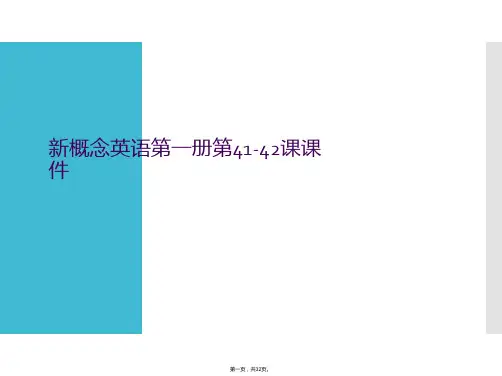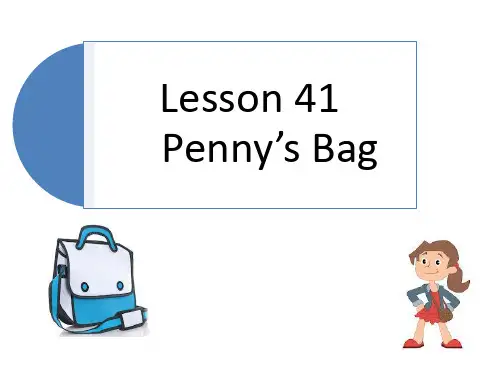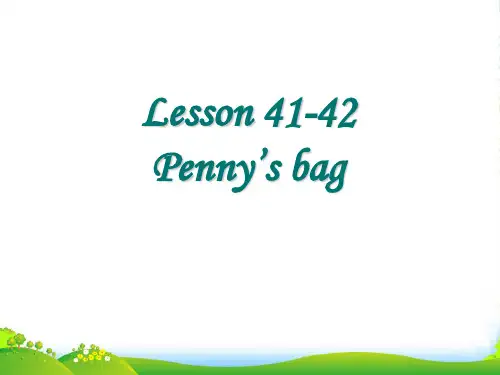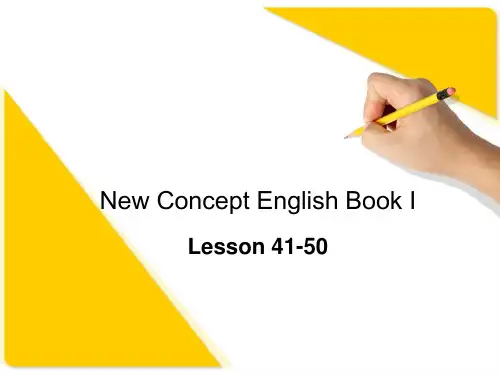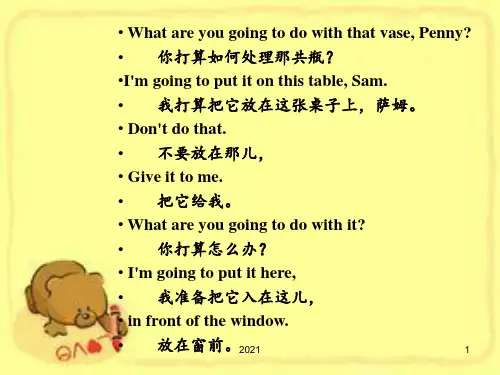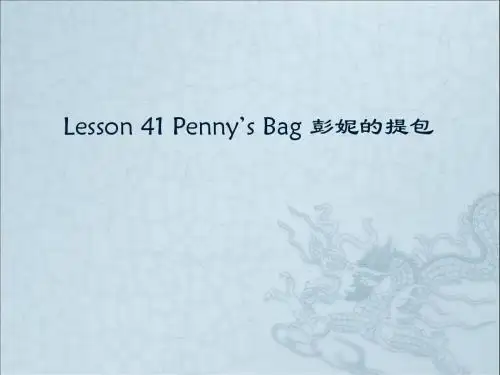● 临床表现 ●
一.腹痛: 特点: ⑴诱因:饱餐,酗酒 ⑵部位:中上腹或左上腹,可向腰背部放射呈束腰带状,严重时可有全腹痛,压痛肌紧 张及反跳痛 ⑶性质:持续性钝痛,刀割痛,钻痛,或绞痛,难以缓解,但极少数人或老年人呈隐痛或 无痛 ⑷缓解方式:进食,仰卧加重;弯腰抱膝位减轻 ⑸持续时间:一般3~5天缓解 腹痛产生的机制:
●体
征●
⑴水肿型:体征与临床表现不符
⑵出血坏死型:急性腹膜炎体征,腹部压痛,反 跳痛,腹肌紧张或上腹包块;化学性胸膜炎.腹 膜炎.淀粉酶明显升高,脐周及侧腹壁皮肤青紫
黄疸
●并 发 症 ●
局部并发症:
1.胰腺及胰周脓肿:多在起病2~3周出现,此时 高热不退;持续腹痛,上腹包块,持续高淀粉酶 血症
变疑问(一调二变三问号)
some 用于肯定句 any用于疑问和否定句 若是可数名词怎么变疑问句呢? 盘子里有一个勺子 There is a spoon on the plate. Is there a spoon on the plate?
Homework
• 1. 单词抄写及背诵:《英语词汇一》P9394页(每个抄写一行)。
a pound of sugar a pound of sugar
a bar of chocolate
a tin of tobacco
a bottle of milk
a tin of tobacco
cheese n. 乳酪,干酪(不可数名词)
a piece of cheese 一块乳酪 two pieces of cheese 两块乳酪
充血炎性细胞浸润可以有少量脂肪组织坏死,无腺泡坏死及血管损伤
⑵出血坏死型:胰腺红褐色或棕黑色有新鲜出血区,有较大范围的脂肪坏死和钙化点 镜下见:胰腺组织坏死,细胞结构消失,常见静脉炎,血栓形成及出血坏死 2 临床分期
